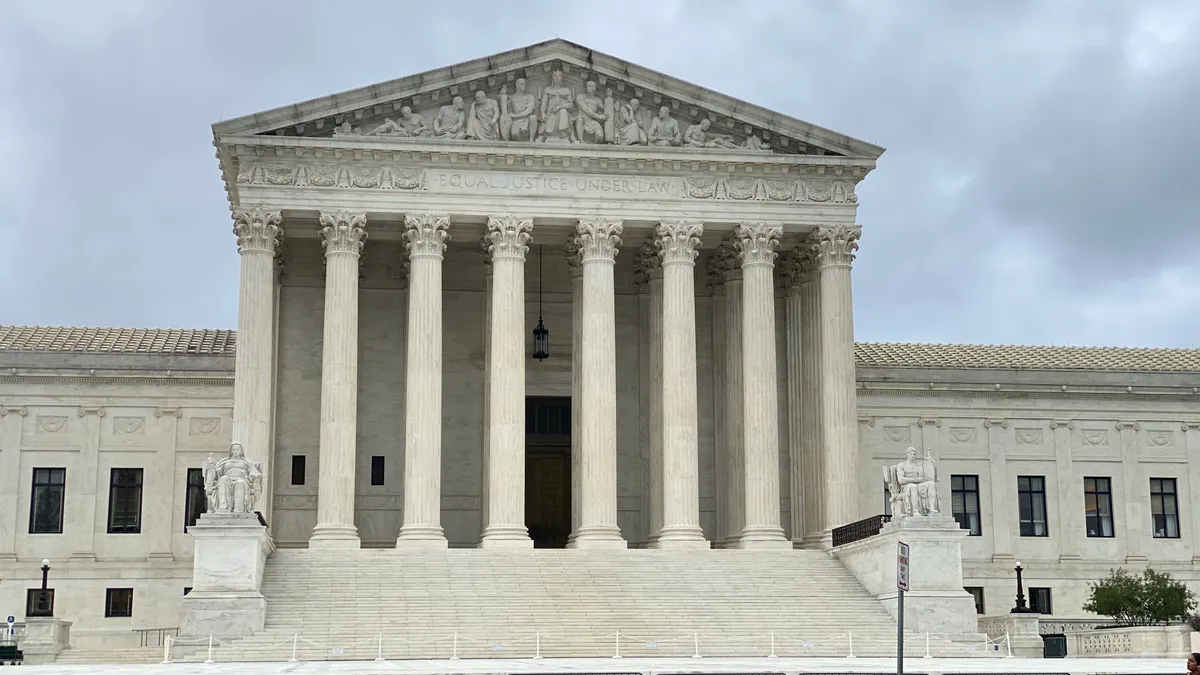The U.S. Supreme Court should revisit and overturn a 1977 ruling that established the “more than a de minimis cost” test for determining whether a proposed workplace religious accommodation constitutes an undue hardship, according to amicus briefs filed by religious groups for a case the court will hear in April (Groff v. DeJoy, No. 22-174 (U.S. Feb. 23, 2023)).
The briefs support the petitioner in Groff v. DeJoy, which involves the appeal of a U.S. Postal Service worker who alleged USPS failed to reasonably accommodate his request not to work on Sundays due to his religious beliefs. The high court agreed to hear the case last month.
In his petition for a writ of certiorari, the employee in Groff asked SCOTUS to decide two questions: whether an employer may demonstrate undue hardship under Title VII of the Civil Rights Act by showing that a requested accommodation burdens co-workers, and whether the court should revisit its decision in Trans World Airlines, Inc. v. Hardison, which established the de minimis cost test.
Hardison “was incorrect the moment it was made,” the Council on American-Islamic Relations said in an amicus brief filed Feb. 23. CAIR said Hardison has, for example, led Muslim women to lose job opportunities because their practice of wearing a hijab may not be contemplated by employers’ policies, or because employers have refused to accommodate this practice by citing safety concerns.
“This Court should correct Hardison's obvious error and end this shameful legacy,” CAIR said. “Undue hardship means undue hardship. This Court should overturn Hardison, and restore Title VII’s promise to reasonably accommodate people of all religions in the workplace.”
On Monday, a separate amicus brief filed by the CatholicVote.org Education Fund said the court should “resolve the tension” between Hardison and the court’s 2015 ruling in EEOC v. Abercrombie & Fitch Stores, Inc., in which it held that an employer can be held liable for refusing to hire an applicant based on a religious observance or practice even if it does not have direct knowledge of the applicant’s need for an accommodation.
The majority in Abercrombie also held that Title VII gives “favored treatment” to religious practices, rather than demanding that religious practices be treated no worse than other practices. But the de minimis standard adopted in Hardison “singled out ‘religion’ for disfavored treatment among the many protected characteristics insulated from discrimination,” CVEF said. “The time is right for this Court to bury Hardison’s legacy and return the promise of dignity to religious workers offered by its decision in Abercrombie.”
The briefs from CAIR and CVEF join previously submitted amicus briefs by religious groups including the General Conference of Seventh-Day Adventists, the Union of Orthodox Jewish Congregations of America, the Sikh Coalition, Muslim Advocates and the Islam and Religious Freedom Action Team. Each of the briefs supported the employee in Groff and asked the high court to revisit Hardison.
In its brief for the respondent in opposition, the U.S. Department of Justice wrote that while the government has previously asked the high court to revisit its decision in Hardison, Groff “would be a poor vehicle in which to do so,” in part because the employee in Groff “would not be entitled to relief under any plausible standard for ‘undue hardship.’”












